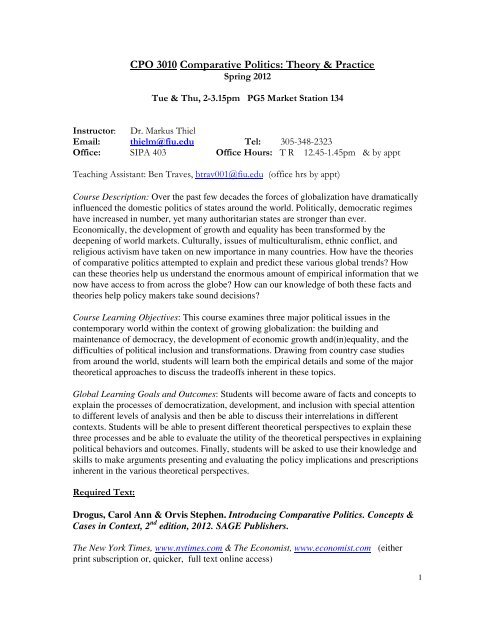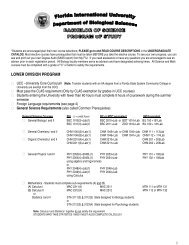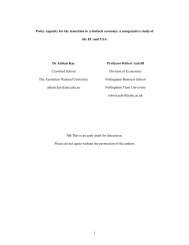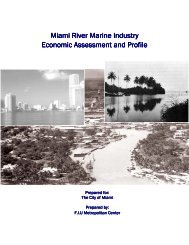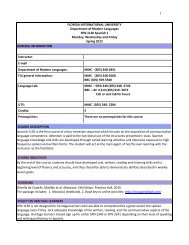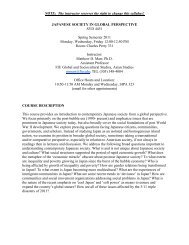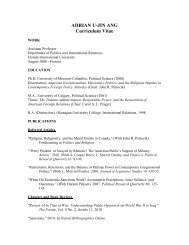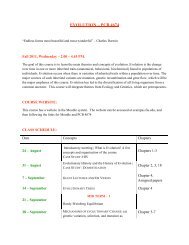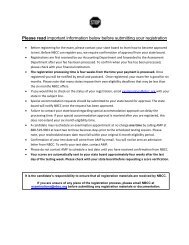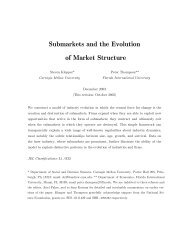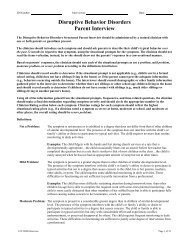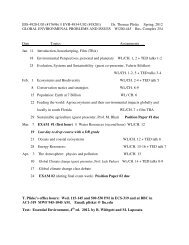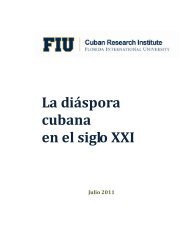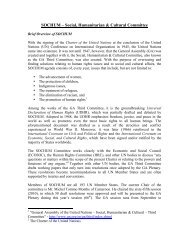CPO 3010 Comparative Politics: Theory & Practice - Florida ...
CPO 3010 Comparative Politics: Theory & Practice - Florida ...
CPO 3010 Comparative Politics: Theory & Practice - Florida ...
You also want an ePaper? Increase the reach of your titles
YUMPU automatically turns print PDFs into web optimized ePapers that Google loves.
<strong>CPO</strong> <strong>3010</strong> <strong>Comparative</strong> <strong>Politics</strong>: <strong>Theory</strong> & <strong>Practice</strong><br />
Spring 2012<br />
Tue & Thu, 2-3.15pm PG5 Market Station 134<br />
Instructor: Dr. Markus Thiel<br />
Email: thielm@fiu.edu Tel: 305-348-2323<br />
Office: SIPA 403 Office Hours: T R 12.45-1.45pm & by appt<br />
Teaching Assistant: Ben Traves, btrav001@fiu.edu (office hrs by appt)<br />
Course Description: Over the past few decades the forces of globalization have dramatically<br />
influenced the domestic politics of states around the world. Politically, democratic regimes<br />
have increased in number, yet many authoritarian states are stronger than ever.<br />
Economically, the development of growth and equality has been transformed by the<br />
deepening of world markets. Culturally, issues of multiculturalism, ethnic conflict, and<br />
religious activism have taken on new importance in many countries. How have the theories<br />
of comparative politics attempted to explain and predict these various global trends? How<br />
can these theories help us understand the enormous amount of empirical information that we<br />
now have access to from across the globe? How can our knowledge of both these facts and<br />
theories help policy makers take sound decisions?<br />
Course Learning Objectives: This course examines three major political issues in the<br />
contemporary world within the context of growing globalization: the building and<br />
maintenance of democracy, the development of economic growth and(in)equality, and the<br />
difficulties of political inclusion and transformations. Drawing from country case studies<br />
from around the world, students will learn both the empirical details and some of the major<br />
theoretical approaches to discuss the tradeoffs inherent in these topics.<br />
Global Learning Goals and Outcomes: Students will become aware of facts and concepts to<br />
explain the processes of democratization, development, and inclusion with special attention<br />
to different levels of analysis and then be able to discuss their interrelations in different<br />
contexts. Students will be able to present different theoretical perspectives to explain these<br />
three processes and be able to evaluate the utility of the theoretical perspectives in explaining<br />
political behaviors and outcomes. Finally, students will be asked to use their knowledge and<br />
skills to make arguments presenting and evaluating the policy implications and prescriptions<br />
inherent in the various theoretical perspectives.<br />
Required Text:<br />
Drogus, Carol Ann & Orvis Stephen. Introducing <strong>Comparative</strong> <strong>Politics</strong>. Concepts &<br />
Cases in Context, 2 nd edition, 2012. SAGE Publishers.<br />
The New York Times, www.nytimes.com & The Economist, www.economist.com (either<br />
print subscription or, quicker, full text online access)<br />
1
Make sure you can access Moodle, http://ecampus.fiu.edu (login w/ your FIU-mail logon<br />
info). Not all of the addt’l readings will be on it, but if not they are available online.<br />
Policies<br />
<strong>Florida</strong> International University is a community dedicated to generating and imparting<br />
knowledge through excellent teaching and research, the rigorous and respectful exchange of<br />
ideas, and community service. All students should respect the right of others to have an<br />
equitable opportunity to learn and honestly demonstrate the quality of their learning.<br />
Therefore, all students are expected to adhere to a standard of academic conduct, which<br />
demonstrates respect for themselves, their fellow students, and the educational mission of the<br />
University. All students are deemed by the University to understand that if they are found<br />
responsible for academic misconduct, they will be subject to the Academic Misconduct<br />
procedures and sanctions, as outlined in the Student Handbook.<br />
All written work submitted for this course must be original – it is the student’s own writing<br />
prepared only for this section of this course using the proper citation of sources. Specific<br />
instructions for the essays will be distributed in class.<br />
Any student in this course who has a disability that may prevent him or her from fully<br />
demonstrating his or her abilities should contact me personally as soon as possible so we can<br />
discuss appropriate accommodations necessary to ensure full participation.<br />
Grading and Requirements:<br />
In-class quiz 15 %/pts<br />
Midterm exam 25 %/pts<br />
Take home Essay 15%/pts; seniors: 10 for essay & 5 for presentation<br />
Final exam 30 %<br />
Class participation 15 % = 100 % / points<br />
If you are a senior student, you need to present in 5 minutes your essay in class,<br />
using powerpoint. They will be filmed & used for FIU’s student learning<br />
assessments.<br />
Grading/Evaluation System:<br />
Students will be evaluated on the following grade scale:<br />
A 93-100<br />
A- 90-92<br />
B+ 87-89<br />
B 83-86<br />
B- 80-82<br />
C+ 77-79<br />
C 73-76<br />
C- 70-72<br />
D+ 67-69<br />
D 63-66<br />
D- 60-62<br />
F 0-59<br />
2
Readings and class topics (the first class of the week covers the book material, while the<br />
second class focuses on addt’l readings and introduces a group-exercise from the book’s case<br />
studies or from the Economist):<br />
TUE, 1/10: Course overview<br />
THU, 1/12: Introduction to <strong>Theory</strong> & <strong>Practice</strong> of <strong>Comparative</strong> <strong>Politics</strong><br />
TUE, 1/17: The Modern State<br />
Reading: Ch. 2<br />
Reading for today: Chapter 1<br />
& Brown, Bernard. ‘Introduction’, Comp Pol: Notes & Readings,<br />
2006.<br />
THU, 1/19: The Modern State continued<br />
Reading: Tilly, Charles, ‘War Making and State Making as Organized<br />
Crime’ in Bringing the State Back In edited by Peter Evans et al.<br />
(Cambridge: Cambridge University Press, 1985).<br />
TUE, 1/24: States & Citizens: Ideologies & Regimes<br />
Reading: Ch.3<br />
THU, 1/26: Cont’d + Case/Economist -Exercise<br />
Reading: Philippe Schmitter and Terry Lynn Karl, “What Democracy<br />
Is… and Is Not,” Journal of Democracy, 2:3 (Summer 1991), 75-88<br />
TUE, 1/31: States & Identity: Ethnicity, Race & Religion QUIZ?<br />
(Guest lecture: Spanish Labor Unions @ 11am)<br />
Reading: Ch. 4<br />
THU, 2/2: Cont’d + Case/Economist -Exercise<br />
Reading: Samuel Huntington, “The Clash of Civilizations?” Foreign<br />
Affairs 72:3 (Summer 1993), 22-49.<br />
TUE, 2/7: States and Market: Capitalism, Neoliberalism, Globalization<br />
Reading: Ch. 5<br />
THU, 2/9: Cont’d + Case/Economist -Exercise<br />
Reading: Coates, David, “Social Justice in a Shrinking World; Beyond<br />
Protectionism and Neo-Liberalism,” in Patrick Diamond & Olaf Cramme (eds),<br />
Social Justice in a Global Age: Cambridge, Polity Press, 2009 (Moodle).<br />
TUE, 2/14: No class<br />
THU, 2/16: Governing Institutions in Democracies (1) - taught by Ben Traves<br />
3
Reading: ch. 6<br />
TUE, 2/21: Cont’d + Case/Economist -Exercise<br />
Reading: Elgie, Robert, ‘From Linz to Tsebelis:3 waves of<br />
Parlia/Presidential Studies?’, http://doras.dcu.ie/2125/1/2004-6.pdf<br />
THU, 2/23: Parties, Elections & Civil Society<br />
Reading: Ch. 7<br />
TUE, 2/28: Cont’d + Case/Economist -Exercise (& Review)<br />
Reading: Gunther, Richard & Diamond, Larry, ‘Species of Pol<br />
Parties’, Party <strong>Politics</strong>, 2003: 17-193 (Moodle).<br />
THU, 3/1: Midterm Examination<br />
TUE, 3/6: Authoritarian Institutions<br />
Reading: Ch. 8<br />
THU, 3/8: Authoritarianism + EUCE conf on ‘Nationalism’<br />
Reading:<br />
Andrew Nathan, “Authoritarian Resilience,” Journal of Democracy<br />
14:1 (January 2003), 6-17.<br />
SPRING BREAK<br />
TUE, 3/20: Regime Change<br />
Reading: Ch.9<br />
THU, 3/22: Take-home essay given + Con’t & Case/Economist -Exercise<br />
Reading:<br />
Thomas Carothers, The End of the Transition Paradigm,” Journal of<br />
Democracy 19:1 (January 2002), 5-21.<br />
TUE, 3/27: Essay Due on Moodle + Globalization & Development<br />
Reading: Ch. 10<br />
THU, 3/29: Case/Economist -Exercise (supervised by Ben Traves)<br />
Reading: Fukayama, Francis, ‘The Future of History: Can Democracy<br />
survive the decline of the Middle Class?’, Foreign Affairs, Jan 2012<br />
TUE, 4/3: Senior-student presentations<br />
4
THU, 4/5: Public Policies: Welfare, Health & Environment<br />
Reading: Ch. 11<br />
TUE, 4/10: Con’t & Case/Economist -Exercise<br />
Reading:<br />
Alberto Alesina, et al, “Why Doesn’t the United States Have a<br />
European-Style Welfare State,” in Essential Readings in <strong>Comparative</strong><br />
<strong>Politics</strong>, 2nd Edition, Patrick O’Neil and Ronald Rogowski eds., (New<br />
York: WW Norton & Company, 2006).<br />
THU, 4/12: Inclusion, (Im)migration & Clashing Values<br />
Reading: Ch. 12<br />
TUE, 4/17: Con’t & Case/Economist -Exercise<br />
Reading: Coate, Roger & Thiel, Markus ‘Identity politics and political<br />
identities – local expressions in a globalizing world’, Identity <strong>Politics</strong> in the Age<br />
of Globalization, Lynne Rienner/First Forum Press, 2010 (Moodle).<br />
THU, 4/19: Last Class – Review & Conclusions<br />
April 23-28: Final Exam Week, exact date TBD<br />
Course Policies:<br />
Readings and Class Participation:<br />
You are expected to come to class with the readings completed. You should be prepared to<br />
participate in class discussions about the topics covered. Also, you are expected to read the<br />
New York Times or consult other quality news outlets to be up-to-date on current political<br />
issues.<br />
Attendance:<br />
Students are strongly encouraged to attend class regularly and class participation is an<br />
important component of this course. If you cannot attend class because of emergencies or<br />
special circumstances, let the instructor know about it in advance. You are expected to come<br />
to class and actively participate in the discussions.<br />
Exams & Grading:<br />
The quizzes will consist mainly of multiple-choice questions (the first will have a map<br />
portion, see:<br />
http://www.addictinggames.com/globegame.html) and the examinations<br />
have added essay questions to be answered. The midterm and the final exam need to be<br />
taken on the scheduled days. A makeup exam will only be scheduled if the student provides<br />
documentation of an official scheduling conflict, serious illness or family emergency.<br />
5
Take-home essay<br />
It will cover material from the 2 nd half of the course. Students are expected to give<br />
answers in an argumentative essay form to specific questions that will draw upon the<br />
readings, the Economist, lectures, and class discussions (1,500-1,750 words). Essays will<br />
be submitted through Moodle. Detailed instructions will be given at the beginning of<br />
class.<br />
6


